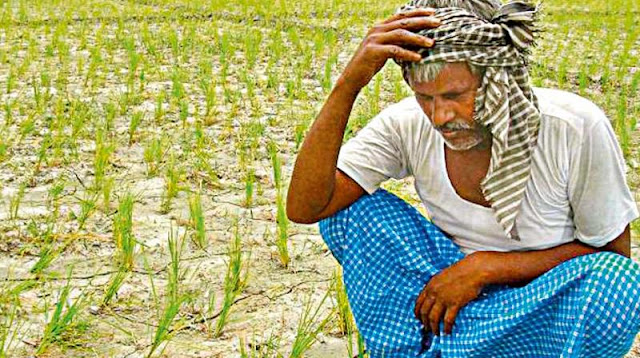Minimum Support Price
Minimum Support
Price (MSP) is a form of market intervention by the Government of India
to insure agricultural producers against any sharp fall in farm prices. The
minimum support prices are announced by the Government of India at the beginning
of the sowing season for certain crops on the basis of the recommendations of
the Commission for Agricultural Costs and Prices (CACP). MSP is price fixed by
Government of India to protect the producer - farmers - against excessive fall
in price during bumper production years. The minimum support prices are a
guarantee price for their produce from the Government. The major objectives are
to support the farmers from distress sales and to procure food grains for public
distribution. In case the market price for the commodity falls below the
announced minimum price due to bumper production and glut in the market,
government agencies purchase the entire quantity offered by the farmers at the
announced minimum price.
Historical perspective of MSP
The Price Support
Policy of the Government is directed at providing insurance to agricultural
producers against any sharp fall in farm prices. The minimum guaranteed prices
are fixed to set a floor below which market prices cannot fall. Till the mid
1970s, Government announced two types of administered prices :
-
Minimum Support Prices (MSP)
-
Procurement Prices
The MSPs served as
the floor prices and were fixed by the Government in the nature of a long-term
guarantee for investment decisions of producers, with the assurance that prices
of their commodities would not be allowed to fall below the level fixed by the
Government, even in the case of a bumper crop. Procurement prices were the
prices of kharif and rabi cereals at which the grain was to be
domestically
procured by public agencies (like the FCI) for release through PDS. It was
announced soon after harvest began. Normally procurement price was lower than
the open market price and higher than the MSP. This policy of two official
prices being announced continued with some variation upto 1973-74, in the case
of paddy. In the case of wheat it was discontinued in 1969 and then revived in
1974-75 for one year only. Since there were too many demands for stepping up the
MSP, in 1975-76, the present system was evolved in which only one set of prices
was announced for paddy (and other kharif crops) and wheat being procured for
buffer stock operations.Determination of MSP
In formulating the
recommendations in respect of the level of minimum support prices and other
non-price measures, the Commission takes into account, apart from a
comprehensive view of the entire structure of the economy of a particular
commodity or group of commodities, the following factors:-
-
Cost of production
-
Changes in input prices
-
Input-output price parity
-
Trends in market prices
-
Demand and supply
-
Inter-crop price parity
-
Effect on industrial cost structure
-
Effect on cost of living
-
Effect on general price level
-
International price situation
-
Parity between prices paid and prices received by the farmers.
-
Effect on issue prices and implications for subsidy
The Commission
makes use of both micro-level data and aggregates at the level of district,
state and the country. The information/data used by the Commission, inter-alia
include the following :-
- Cost of cultivation per hectare and structure of costs in various regions of the country and changes there in;
- Cost of production per quintal in various regions of the country and changes therein;
- Prices of various inputs and changes therein;
- Market prices of products and changes therein;
- Prices of commodities sold by the farmers and of those purchased by them and changes therein;
- Supply related information - area, yield and production, imports, exports and domestic availability and stocks with the Government/public agencies or industry;
- Demand related information - total and per capita consumption, trends and capacity of the processing industry;
- Prices in the international market and changes therein, demand and supply situation in the world market;
- Prices of the derivatives of the farm products such as sugar, jaggery, jute goods, edible/non-edible oils and cotton yarn and changes therein;
- Cost of processing of agricultural products and changes therein;
- Cost of marketing - storage, transportation, processing, marketing services, taxes/fees and margins retained by market functionaries; and
- Macro-economic variables such as general level of prices, consumer price indices and those reflecting monetary and fiscal factors.
Source : Farmer Portal
Crops for which MSP is announced
Minimum support
prices are currently announced for 25 commodities. They are as follows.
-
Cereals (7) - paddy, wheat, barley, jowar, bajra, maize and ragi
-
Pulses (5) - gram, arhar/tur, moong, urad and lentil
-
Oilseeds (8) - groundnut, rapeseed/mustard, toria, soyabean, sunflower seed, sesamum, safflower seed and nigerseed
-
Copra
-
Raw cotton
-
Raw jute
-
Sugarcane
-
Virginia flu cured (VFC) tobacco




